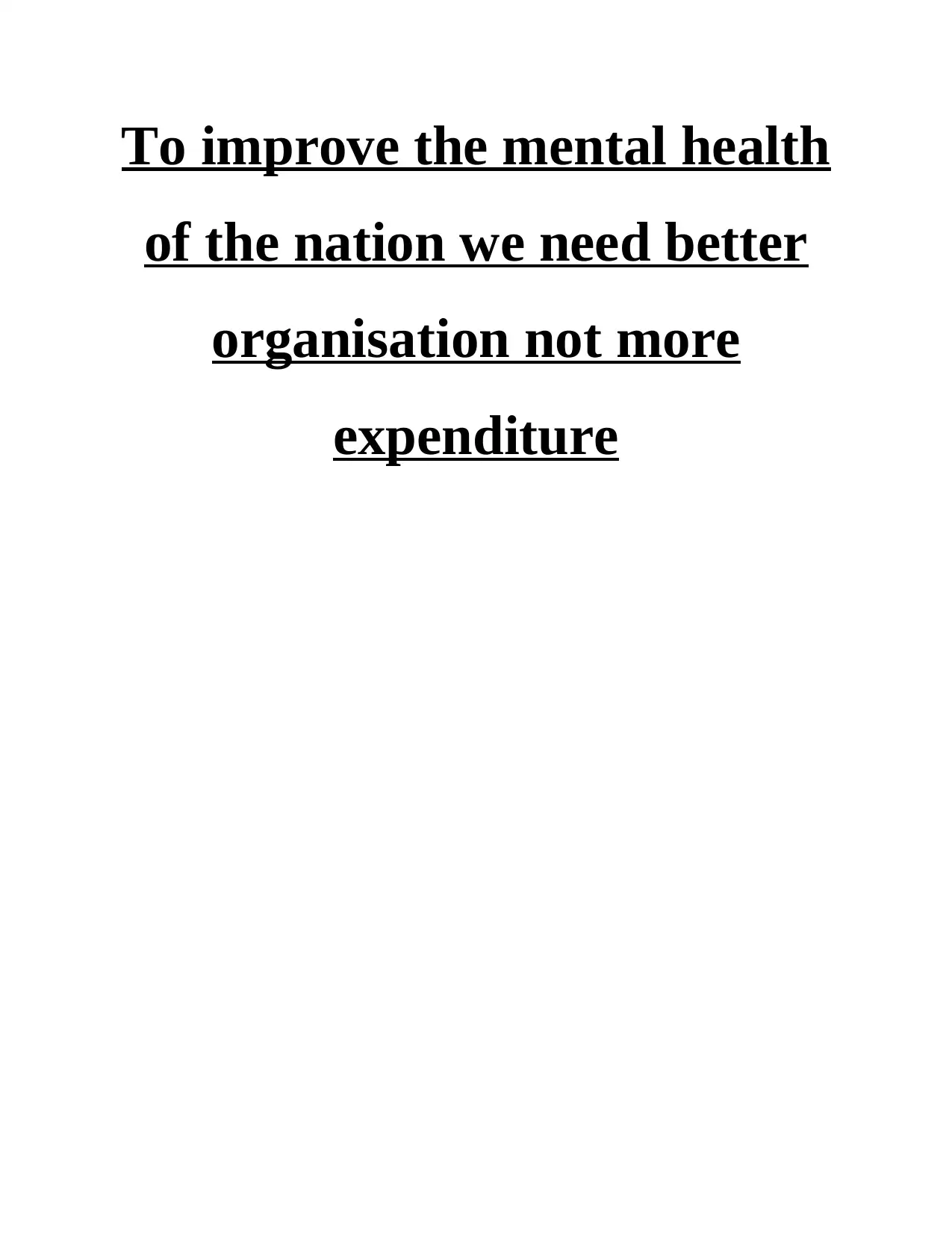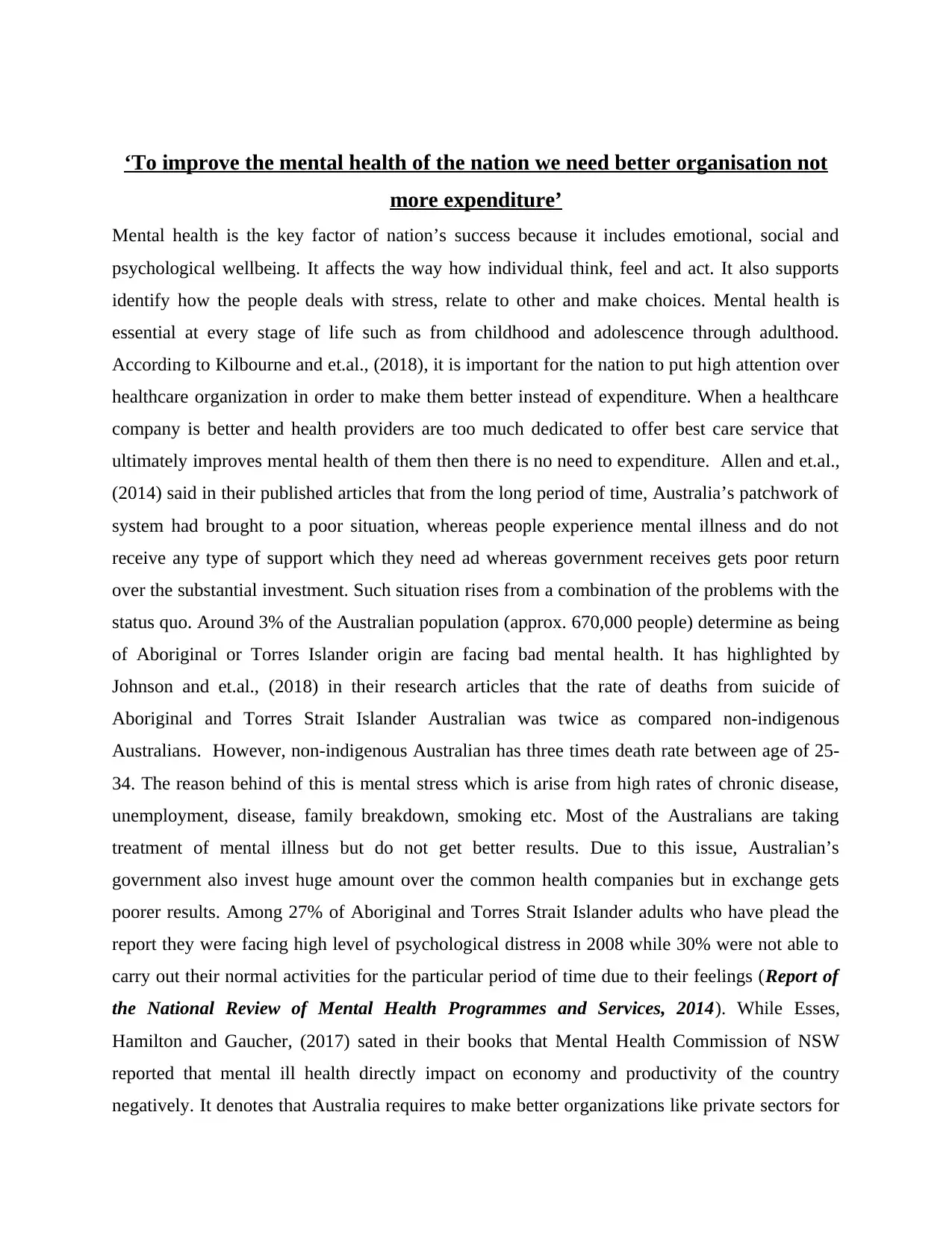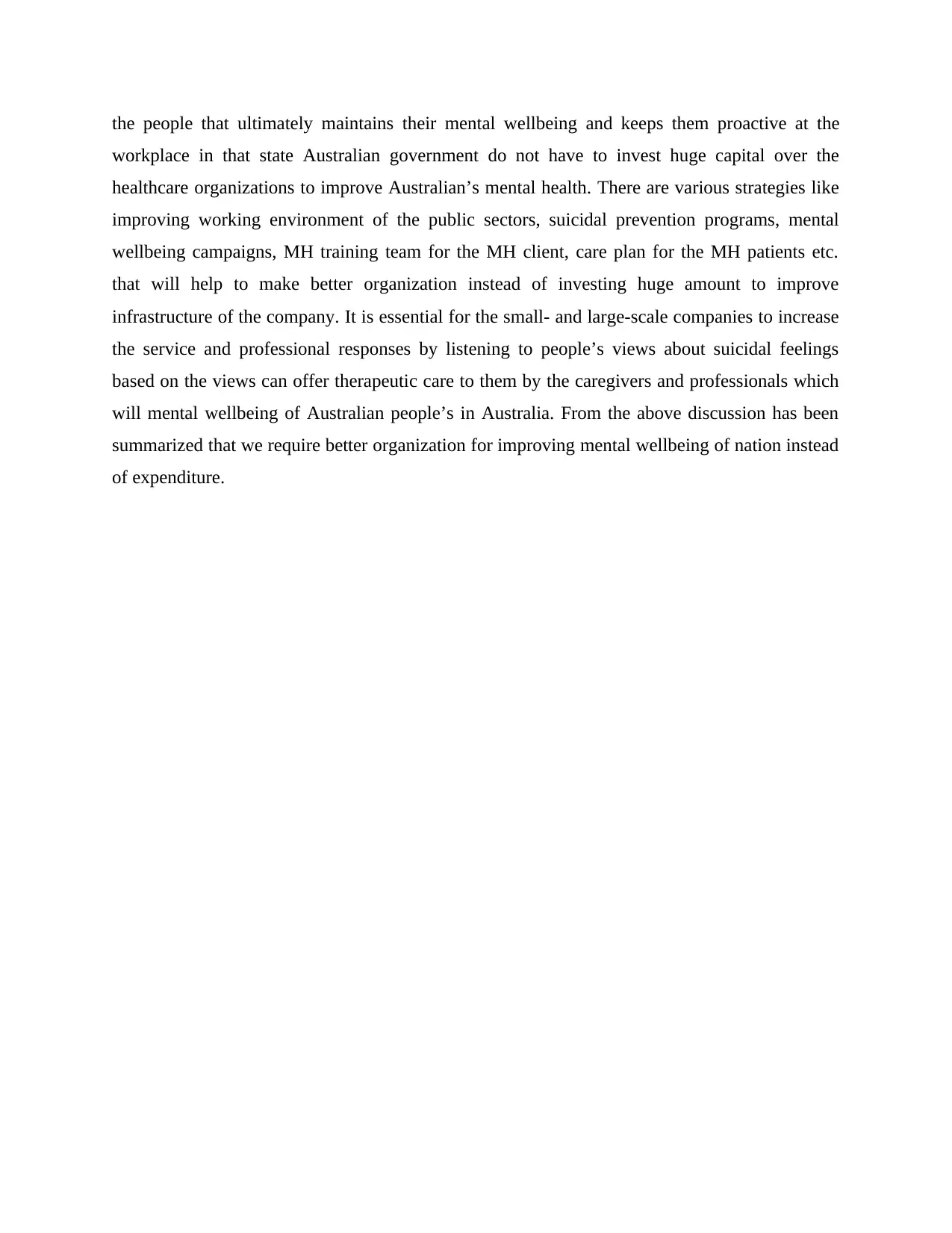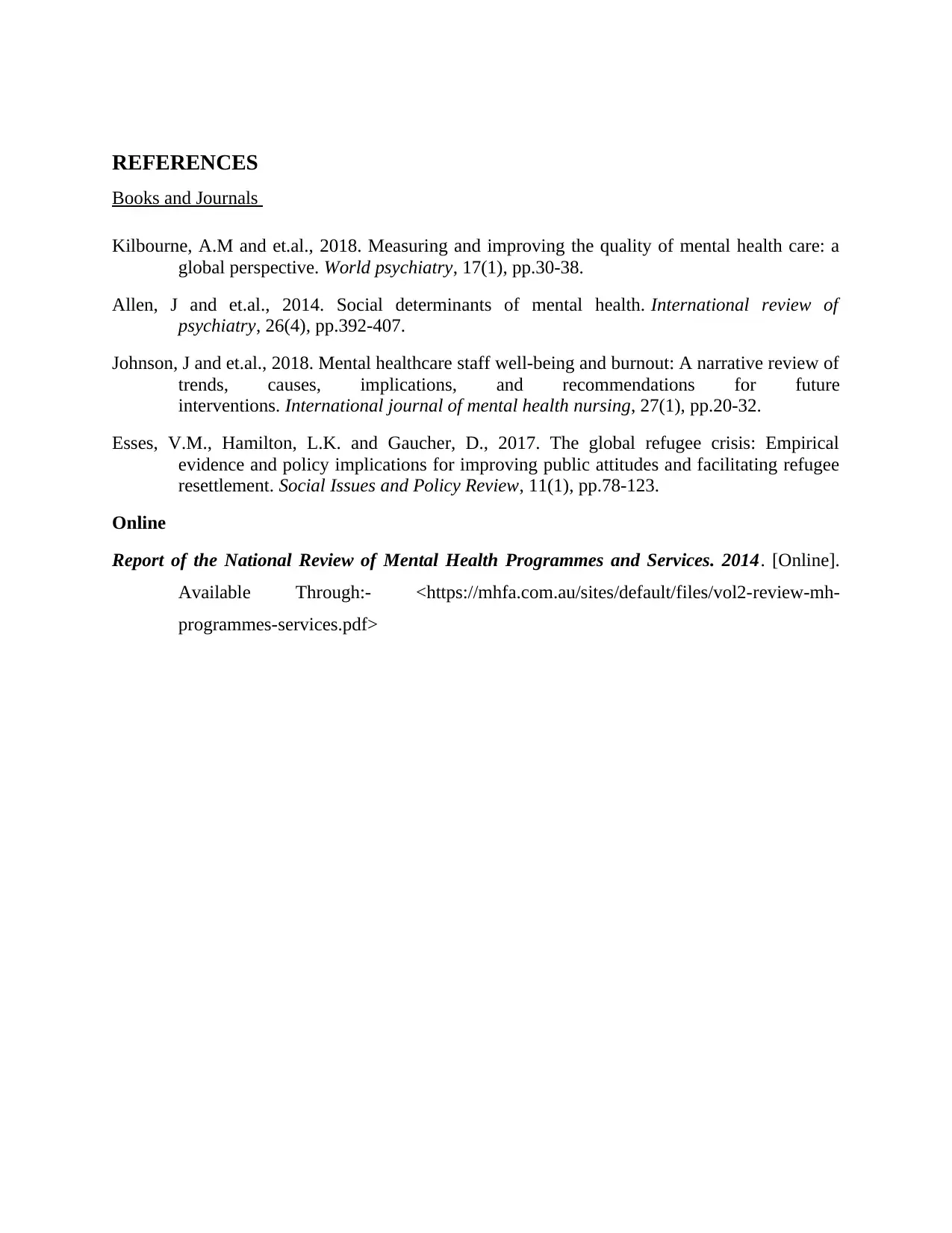Enhancing National Mental Health: Organization and Resource Allocation
VerifiedAdded on 2023/01/04
|5
|880
|83
Essay
AI Summary
This essay explores the critical relationship between mental health and national success, emphasizing the importance of organizational improvements over increased expenditure in the healthcare sector. The author argues that focusing on better organization within healthcare systems, rather than simply increasing financial investments, is key to enhancing the mental wellbeing of a nation. The essay highlights the detrimental effects of poor mental health, citing statistics on the Aboriginal and Torres Strait Islander populations in Australia as an example, and points out the ineffectiveness of current spending patterns. It proposes strategies such as improving working environments, implementing suicide prevention programs, and providing mental health training as effective alternatives. The conclusion reinforces the need for organizational changes to promote mental wellbeing and improve overall national health outcomes. The essay uses references to support its arguments.
1 out of 5











![[object Object]](/_next/static/media/star-bottom.7253800d.svg)